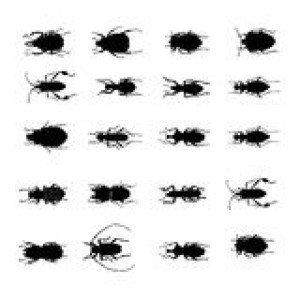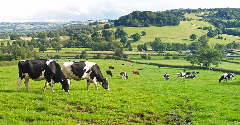News
Belgian government assesses insect consumption
29 Jan 2015The Belgian government’s Scientific Committee and the Superior Health Council have been asked to give advice on the potential risks (hazards) associated with the consumption of these insects (entomophagy), and have produced a report. In the search for alternative dietary protein sources, the committee notes, insects appear to offer great potential. Currently there are no […]

 The Belgian government’s Scientific Committee and the Superior Health Council have been asked to give advice on the potential risks (hazards) associated with the consumption of these insects (entomophagy), and have produced a report.
The Belgian government’s Scientific Committee and the Superior Health Council have been asked to give advice on the potential risks (hazards) associated with the consumption of these insects (entomophagy), and have produced a report.
In the search for alternative dietary protein sources, the committee notes, insects appear to offer great potential. Currently there are no specific regulations neither in Belgium, nor in Europe, on the breeding and marketing of insects destined for human consumption. The trade of a number of insect species destined for human consumption is however tolerated in Belgium. Worldwide there are about 2,000 edible insect species known and, in certain regions, insects have been eaten for centuries by humans.
Nevertheless, the committee points out, there is only little scientific literature available on the food safety of insects. To guarantee the food safety of entomophagy on a large scale, more research on the microbial and chemical safety of insects destined for human consumption is needed.
In the advisory report, the potential microbial, chemical (including allergens) and physical hazards specifically related to the consumption of insects are discussed. These hazards depend on the insect species, the cultivation conditions (feed and environment) and the subsequent processing, and can largely be controlled by the adequate application of the prevailing good hygiene and manufacturing practices during breeding and marketing of insects. Nevertheless, a heating step before consumption is indispensable as well as the mentioning of appropriate storage and preparation conditions on the label. The label should additionally contain a warning for a possible allergic reaction of persons allergic to seafood and/or dust mites.
Related news

Has ‘clean’ had its day?
22 Dec 2025
Wielding clean-label positioning and fortification as marketing levers is a dangerous strategy, and brands would be better off explaining the hows and whys of the ingredients in their products, say experts.
Read more
Celebrating the winners of the Fi Europe Innovation Awards 2025
3 Dec 2025
Food industry stakeholders celebrated as the winners of the Fi Europe Innovation Awards were announced at a ceremony in Paris.
Read more
Alternative protein startups pivot to B2B ingredients amid funding shift
27 Nov 2025
Alt protein startups are pivoting from consumer meat analogues to high-value B2B ingredients, driven by stronger investor interest, better margins, and clearer commercial pathways.
Read more
Walmart Marketplace’s record growth prompts search for UK sellers
26 Sep 2025
Walmart’s third-party e-commerce platform, Marketplace, has witnessed extraordinary growth – but a need for more product diversity has prompted the retailer to recruit UK sellers.
Read more
The winners of Vitafoods Europe Startup Challenge 2025 revealed
29 May 2025
Four startups – Yomio Drops, PFx Biotech, Revobiom, and Favamole – took top prizes at this year’s Vitafoods Europe Startup Challenge awards.
Read more
East takes on West in the fight for future food flavours
30 Apr 2025
Asian and South American flavours are now key components on global menus, driven by a growing global appetite for culinary mashups.
Read more
Food companies urged to bring ‘joy’ and urgency to healthy food mission
14 Mar 2025
For too long, businesses have treated health and sustainability as separate agendas – but there is growing evidence to show diets that benefit human health can also enhance that of the planet, say experts.
Read more
Entries open for inaugural Vitafoods Europe Innovation Awards
29 Jan 2025
Entries are open for the inaugural Vitafoods Europe Innovation Awards, celebrating the ingredients, finished products, partnerships, and initiatives redefining the nutraceutical landscape.
Read more
Paris Olympics: Food and beverage brands champion health, fun, and sustainability
5 Aug 2024
Food and beverage brands are aligning with the Paris Olympics 2024 Food Vision, which emphasises sustainability, local sourcing, and plant-based diets.
Read more
Natural Remedies: Bringing health and happiness via validated branded ingredients
18 Apr 2024
Natural Remedies is an internationally renowned botanical healthcare company committed to advancing the field through rigorous research and the development of clinically validated Branded Ingredients. Guided by our foundational principle of ‘BEING USEF...
Read more